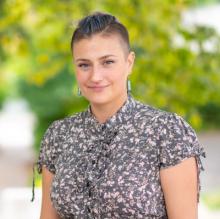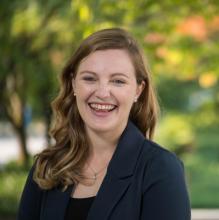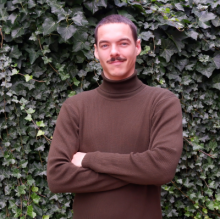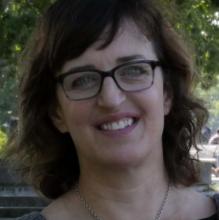Goodyear, Trevor
To me, being a Public Scholar means that I have a responsibility (and privilege!) to lead research set on advancing health equity and social justice. Working with the Public Scholars Initiative will help me to collaborate with other researchers and community partners who share this goal, which will ultimately enhance our collective capacity to contribute to the public good.
Research Description
Two-Spirit, lesbian, gay, bisexual, transgender, queer, and other sexual and gender minority (2SLGBTQ+) youth are inequitably impacted by substance use and homelessness. In British Columbia, homeless 2SLGBTQ+ youth who use drugs are now facing intersecting public health crises related to overdoses, housing (un)affordability, and COVID-19. In response to these crises, innovative health policy and programming interventions in BC are now underway. Yet, it remains unclear how these interventions can be tailored to best serve homeless 2SLGBTQ+ youth who use drugs–a critical research gap, given inequities and public health challenges faced. My PhD research will address the gap by using community-based, critical ethnographic approaches to examine the drug-, housing-, and broader health-related experiences of homeless 2SLGBTQ+ youth who use drugs. Set in Vancouver, British Columbia, this study will include intensive qualitative interviews and arts-based photovoice methods with 40 homeless 2SLGBTQ+ youth who use drugs. Findings from this study will identify how interventions (e.g., clinical, programming, policy) can best be used to reduce drug-related harms and improve health and social outcomes for this priority population.
What does being a Public Scholar mean to you?
To me, being a Public Scholar means that I have a responsibility (and privilege!) to lead research set on advancing health equity and social justice. Working with the Public Scholars Initiative will help me to collaborate with other researchers and community partners who share this goal, which will ultimately enhance our collective capacity to contribute to the public good.
In what ways do you think the PhD experience can be re-imagined with the Public Scholars Initiative?
The Public Scholars Initiative’s networking and training opportunities will undoubtedly shape by PhD experience. I am especially looking forward to learning from students in other disciplines and to expanding my network of community and research partners.
How do you envision connecting your PhD work with broader career possibilities?
My PhD research is a community-based study with homeless 2SLGBTQ+ youth who use drugs. The knowledge, skills, and relationships that I am developing through this work will be invaluable to my future career as an applied health researcher, regardless of whether this is in the academic, non-profit, or government sector.
How does your research engage with the larger community and social partners?
My PhD work is nested in BC Centre on Substance Use research activities and will be conducted in partnership with the At-Risk Youth Study’s Youth Health Advisory Council. This is a group of youth with expertise in community-based research and advocacy, and who have lived experience of substance use and homelessness. I will work closely with this advisory council for all aspects of the research, from study design to knowledge mobilization. The impact of my PhD research will also be strengthened by leveraging my broader network of research and community partners, which I expect to grow alongside Public Scholars Initiative activities.
Why did you decide to pursue a graduate degree?
My clinical experiences as a nurse drew my attention to key challenges in our healthcare system and our approaches to care with people who use drugs. I pursued graduate studies to better equip myself to address these challenges, including by advancing my research knowledge and by developing the necessary partnerships.
Why did you choose to come to British Columbia and study at UBC?
I was first drawn to UBC because it is one of few schools to offer dual master's training in nursing and public health. After finishing my master's, I decided to stay in the city because I was fortunate to have found excellent mentors at the school, as well as for personal and family reasons.
What is it specifically, that your program offers, that attracted you?
The School of Nursing at UBC has a strong reputation and is home to several faculty members who are leaders in equity-oriented research. My established relationships with my master's thesis committee and PhD co-supervisors, Drs. Emily Jenkins and Rod Knight, were big draws for me to stay at UBC for my doctoral research.
For you, what was the best surprise about graduate life, about UBC or life in Vancouver?
I had never been to Vancouver before moving here for grad school, so everything was a surprise! The best surprises have been the people I've met, the beautiful cherry blossoms (even though I'm allergic!), and the tireless local activism, particularly when it comes to harm reduction and human rights-based drug policy.
What aspects of your life or career before now have best prepared you for your UBC graduate program?
My education and practice as a nurse have been instrumental in preparing me for PhD studies, especially when it comes to things like time management, prioritization, and always thinking about people and the bigger picture first. I've also gotten to work with incredible mentors who have kept me inspired while also providing tons of opportunities for learning and growth. An internship I did with the BC Centre on Substance and my PhD co-supervisor, Dr. Rod Knight, stands out as being of one of the most influential training opportunities I have had.
Do you have any tips for students from your home country coming to Canada / to UBC Grad School?
Make sure to find supportive supervisors and a research topic you are passionate about. Try new things, make friends, and take the time to care for yourself and to have fun alongside your studies. And learn how to say no to things and to determine when your work is "good enough"!



